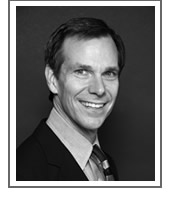

Randy Siegel builds the people who build organizations.
Organizations hire Randy to transform high-potential employees into a new generation of leaders. Randy gives them the leadership and communications skills they need to rise through the organization.
CEOs hire Randy to help them become more charismatic leaders, spokespeople, and ambassadors for the organizations they serve.
His work is based upon a proprietary process that facilitates self-discovery to clarify personal perspective, true purpose, and professional image.
For more information, contact: Randy@PowerHouse Communications.com
Asheville, NC
Atlanta, GA
Washington, D.C.
Phone: (828) 236-0045
Toll Free:
(888) 836-0045
Postcard from Asheville, N.C.
When I am in Washington, D.C., my friend Penny and I attend a weekly meditation group on Wednesdays. I have a hard time meditating alone. For whatever reason, I find it much easier in a group.
Tara Brach is the leader, and I am currently reading her wonderful book Radical Acceptance: Embracing Your Life with the Heart of a Buddha. In it, she explains that radical acceptance is the willingness to experience your life as it is. Tara writes, “The two parts of genuine acceptance – seeing clearly and holding our experience with compassion – are as interdependent as two wings of a great bird. Together, they enable us to fly and be free.”
When we accept ourselves with compassion, we can more easily extend compassion to others. I know that when I began to accept my own pain, I became more empathetic to the pain of others.
In the business world we seldom talk about pain. To do so would be to admit vulnerability, and conventional wisdom says vulnerability and business do not mix. In some cases, such as during an important negotiation, conventional wisdom makes good sense, but in other circumstances it doesn’t.
When we admit our vulnerability and begin to feel empathy for others, we forge stronger connections, and strong connections are the cement that builds businesses and holds them together.
Recently I hired a consultant to review my positioning. After reading several of my newsletters he commented, “Randy, you talk too much about pain. You get too personal.” While some may agree, I don’t. Self-awareness, self-acceptance, self-disclosure, empathy, and compassion have a place in the world of business. Together they keep us connected with ourselves and others, and this connection allows us to be free and fly.
This month, we’ll explore the power of accepting the “what is.”
The Power of Accepting the "What Is"
Was the universe trying to get my attention? Was it synchronicity or chance? For the second day in a row, I had drawn the same tarot card as a part of my daily meditation. The card read: Aloneness, Not Loneliness.
I had been single for more than six months and still weekends were tough. Try as I might, I felt lonely. It seemed that the rest of the world was enjoying leisure time with loved ones, while I struggled to fill the hours alone.
I hate self-pity and I abhor playing the role of victim. At the same time, I have to admit it felt good feeling sorry for myself. Perhaps it’s one of the few times that I show myself any compassion.
Well-meaning friends counseled me to join special interest groups, volunteer, and call folks to go to the movies. But past patterns of numbing pain with activity no longer worked. I had to sit with my sadness. I had to befriend it. I had to understand it rather than trying to make it go away.
The following weekend I resolved not to judge my feelings but to give myself permission to feel them. If I felt sad, I would feel sad.
The weekend came and went and not once did I feel the pain of past weekends. Had purging judgment taken the sting out of being alone?
Angeles Arrien in her book The Second Half of Life reminds us that when we release judgments we begin to accept circumstances rather than resign ourselves to them. When we accept the “what is,” we open ourselves to possibilities and outcomes that we may not have ever imagined.
Perhaps theologian John O’Donohue says it best in his poem, “Fluent:”
I would love to live
Like a river flows,
Carried by surprise
Or its own unfolding
###
Copyright Randy Siegel 2006. All rights reserved.